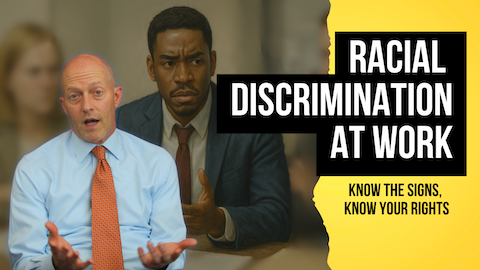 If you work for a company that owns a franchise, you may have to obey many rules to keep your job. But whose rules are they? How and why you’re treated as an employee, and by whom, are the big issues to work out when deciding who is actually your employer under the law. You probably get a paycheck from the company that holds the franchise, but, depending on the facts, the franchisor may also be held legally responsible as a joint employer.
If you work for a company that owns a franchise, you may have to obey many rules to keep your job. But whose rules are they? How and why you’re treated as an employee, and by whom, are the big issues to work out when deciding who is actually your employer under the law. You probably get a paycheck from the company that holds the franchise, but, depending on the facts, the franchisor may also be held legally responsible as a joint employer.
What Is a Franchise?
 When you hear the word “franchise,” you may think of McDonald’s. Though the fast-food chain may be the world’s most famous franchise, it’s far from the only one. Essentially, a franchise is a way for a person or company (the franchisee) to start a business without having to start from scratch. If you wanted to start a cleaning business, for example, you could start one yourself and learn as you go, or you could purchase a franchise. With the franchise, a business plan would be laid out for you, along with a number of products or services to offer. You would receive ready-to-use logos and marketing plans, and you may share the costs of advertising. There may also be guidance along the way to help you get the business started and succeed over time.
When you hear the word “franchise,” you may think of McDonald’s. Though the fast-food chain may be the world’s most famous franchise, it’s far from the only one. Essentially, a franchise is a way for a person or company (the franchisee) to start a business without having to start from scratch. If you wanted to start a cleaning business, for example, you could start one yourself and learn as you go, or you could purchase a franchise. With the franchise, a business plan would be laid out for you, along with a number of products or services to offer. You would receive ready-to-use logos and marketing plans, and you may share the costs of advertising. There may also be guidance along the way to help you get the business started and succeed over time.
The company offering this business opportunity, and providing you with plans and guidance, is the franchisor. It’s making money by getting others to join the chain through up-front payments, a percentage of the franchisee’s revenue, plus sales of anything from equipment to uniforms to food. The two parties enter into a contract, agreeing that the franchisee can operate the business (the franchise) in exchange for money, purchasing certain items and following a number of established rules and policies. These rules exist to create consistency in the customer experience. A customer going into a McDonald’s franchise in Virginia, Ontario, or Scotland should basically see, hear, and taste the same things in all three (which is why franchises are so loved and so hated).
Franchises are not just for restaurants. As you can see from this Entrepreneur magazine article on its picks for the best franchises for 2016, these ready-made businesses do include restaurants, but they also include cleaning businesses, hotels, auto repair shops, hair salons, convenience stores, fitness centers, and hardware stores, among others.
Who Actually Employs Me?
An employer is anyone who has enough control over the terms and conditions of a person’s employment to be considered, under the law, to be actively employing that person. There is no “bright line” rule. Just because a business is a franchise, and your work assignments and paychecks come from the franchisee, it doesn’t necessarily mean that the franchisor is not also your employer. You can have more than one employer, if both the franchisee and the franchisor control your employment. In that case, they would be considered “joint employers.”
The sticking point is the amount of control the franchisor has over the franchisee’s employees. In their franchise agreement, there may be a long list of rules about what employees should or shouldn’t, or can or can’t, do. A franchisor may visit its franchise, see how it’s being run, witness the employees’ conduct, and either directly to the employees or through the franchisee communicate what the employees are doing wrong or what they need to change to comply with the franchise rules. Consistency is very important to any franchise’s brand and business model, so the franchisor wants everyone working in these businesses, no matter where they are, to act, look, and sound the same.
That’s the essence of control. If a government body or judge decides that a franchisor exercises too much control over the workforce, that parent business may be held liable under any number of laws concerning the employee-employer relationship, along with the franchisee. These include wage and hour, labor relations, and discrimination laws.
Franchisors Have Come Under More Scrutiny
Government agencies with responsibility for regulating the workplace are looking more into the issue of joint employers. Whatever the broad policy issues may be, the outcome all boils down to the facts of a particular case.
The National Labor Relations Board (NLRB), which has jurisdiction over union and collective action issues, has taken the position that a franchisor may be given joint employer status concerning a franchisee’s employees if that franchisor “meaningfully affects matters relating to the employment relationship such as hiring, firing, discipline, supervision and direction.” Two restaurant chains provide examples of different actions by the NLRB on this issue.
1. McDonald’s
 In 2014, the NLRB found that McDonald’s Corporation exercises enough control over its franchisees that it should be held jointly responsible for the working conditions of its franchisees’ employees. The agency filed charges against the company based on how franchise employees seeking to unionize the workforce were treated, according to the Insurance Journal.
In 2014, the NLRB found that McDonald’s Corporation exercises enough control over its franchisees that it should be held jointly responsible for the working conditions of its franchisees’ employees. The agency filed charges against the company based on how franchise employees seeking to unionize the workforce were treated, according to the Insurance Journal.
The NLRB’s general counsel stated that it would proceed with 13 cases involving 78 separate allegations against McDonald’s and some of its franchisees. The charges allege that McDonald’s and its franchisees disciplined employees, cut their hours, and engaged in “other coercive conduct” to stifle their efforts to unionize in support of a higher minimum hourly wage.
McDonald’s argues that its franchisees set wages for their employees and control local working conditions, while workers state that it’s the corporation that really controls how local restaurants operate. The workers argue that the regimented rules and regulations that McDonald’s demands its franchisees follow end up controlling how employees work.
2. Freshii
Freshii is a Canadian restaurant franchisor. Nutritionality, Inc., is a Chicago-area franchisee of the restaurant chain. Nutritionality was accused of firing two employees because they tried to unionize the workforce. During the case, the NLRB decided that Freshii was not a joint employer. Why not?
Simply put, it wasn’t as heavy-handed as McDonald’s when it came to controlling franchise employees. Under the Freshii’s franchise agreement, the franchisor’s standards don’t include personnel policies or procedures. Freshii does share its personnel policies with franchisees, but it’s up to each franchisee to decide whether to use them. Franchisees are exclusively responsible for hiring and firing decisions, and they establish wages, schedules, raises, and benefits for employees. Freshii gives its franchisees a sample employee handbook, but it doesn’t require its use. While potential employees could apply for jobs with franchisees through Freshii’s website, the franchisor doesn’t screen resumes or do anything more than forward them to franchisees. Finally, Freshii passively, but not actively, monitors sales and costs.
Nutritionality sought advice from Freshii on how to handle the issue of the union organizers, but the franchisor didn’t respond. Nutritionality hired its own attorney for the matter and made its own decision to fire the employees. Therefore, Freshii was not a joint employer.
Summing It Up
If you work for a franchise and believe that a law is being broken concerning your relationship with your employer, the franchisor may or may not be held responsible, depending on the specific facts.
- The more the franchisor controls the employment relationship between you and the franchisee, the more likely it will be seen as a joint employer. If so, then compensation may be sought from that franchisor in addition to the individual franchisee.
- The more “hands off” the franchisor is as to how employees are treated, the less likely that the parent company will be held responsible.
If you work for a franchise and think that your employer is violating an employment law, contact our office. We can talk about what’s happening, discuss the specifics of your job, and help you figure out how much control the franchisor may have and how the law may apply in your situation.





